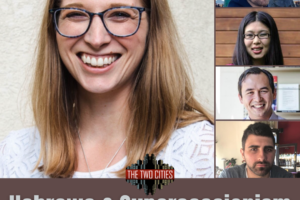Anyone who has spent significant time in Christian circles has either heard or pondered the problem of the un-evangelized individual. The problem is usually phrased as a question:
What happens, hypothetically, to someone who dies without ever hearing about Jesus Christ?
There is a story behind this question: An all good, all loving, all powerful God exists. In order to come into the right relationship with Him it is necessary to accept the Lordship of Christ. But there is a person who has never heard about Jesus Christ, and it is very uncomfortable to think about his/her fate.
There are three elements in the story that create the problem.
- An all good, all loving, all powerful God exists.
- Someone has to accept Jesus Christ as their Lord to be saved.
- There are people that never heard about Jesus Christ.
The way the question is answered is raises all kinds of other questions, many of which call into question one or more of these three elements.
On one hand, if the question is answered that they go to hell, then new questions are raised about God. Why would a good, loving, all powerful God condemn somebody for not accepting what they have never heard about? Does such a God even exist? How can such a person be judged worthy of hell? …And so on.
On the other hand, if the question is answered that they go to heaven, then different questions are raised about the real importance of the special, historical knowledge about Jesus Christ. How can a person be saved apart from acknowledging the lordship of Christ? If that person can be saved, then why should anyone be required to accept certain beliefs about Christ? …And so on.
Because the dilemma is all framed as a hypothetical it seems possible to tinker with the truthfulness of the assumptions. Generally, the dilemma is “solved” by either changing #1 or #2. It is a lot easier to cut the Gordian Knot than to wrestle through its complexities.
I will try to give an example of why this is problematic.
Suppose, hypothetically, there exists enough food in the world that no one has to starve to death. We also assume that a person must regularly eat enough food to avoid starvation. But there is at least one person doesn’t have enough food. So do people starve to death, or what?
Again there are three elements to this story that create a problem.
- Enough food exists to feed everyone in the entire world.
- Regular consumption of food is necessary to avoid starvation
- There are people who don’t have access to a sufficient amount of food.
Now at this point no one is their right mind would (I hope!) think to start tinkering with the truthfulness of any of these assumptions in order to resolve the dilemma. In particular the second element is beyond question. Faced with the uncomfortable possibility that someone might starve, I doubt there is anyone who concludes that it just must not be the case that anyone really starves. This would be ludicrous and shockingly naïve. “Solving” the problem of world hunger by cutting the Gordian Knot doesn’t actually solve anything! In fact, it will probably make the problem much, much worse.
I hope that is more obvious now that if someone is deals with the discomfort caused by hypothetical situations by changing what they actually believe about the world would be making a serious mistake. Imagine overhearing someone say, “I just couldn’t believe in a world where people starve to death, so such a world must not exist.” However uncomfortable these facts are, they are the reality of the situation and they must be dealt with. And of course, once it stops being a hypothetical situation we can begin to wrestle through the particular reasons why this sort of thing is going on.
This is the correct response to real dilemmas, and this is where I hope most readers have already intuitively gone: a series of particular explanations must exist that would make sense of how all these elements can be true. We seek to explain the relationship between the three facts of reality. Mere discomfort or shock resulting from a set of circumstances is not reason enough to discredit the reality of the circumstances.
The problem, of course, arises because the three statements in the first story are usually dealt with as something totally different than those in the second set. One way of putting it is that they are “religious” rather than “scientific.” They aren’t really true in the same way that the others are, and somehow we can actually change them by believing something different. (Isn’t it odd that we talk very passionately about “freedom of religion” but never “freedom of science”?) I think that one very healthy step forward may be to stop dealing with theology in abstract hypotheticals over which we remain in control, and start realizing that we are speaking about truths that, if true, remain real no matter how uncomfortable or difficult they are to accept.





2 Comments
Leave your reply.